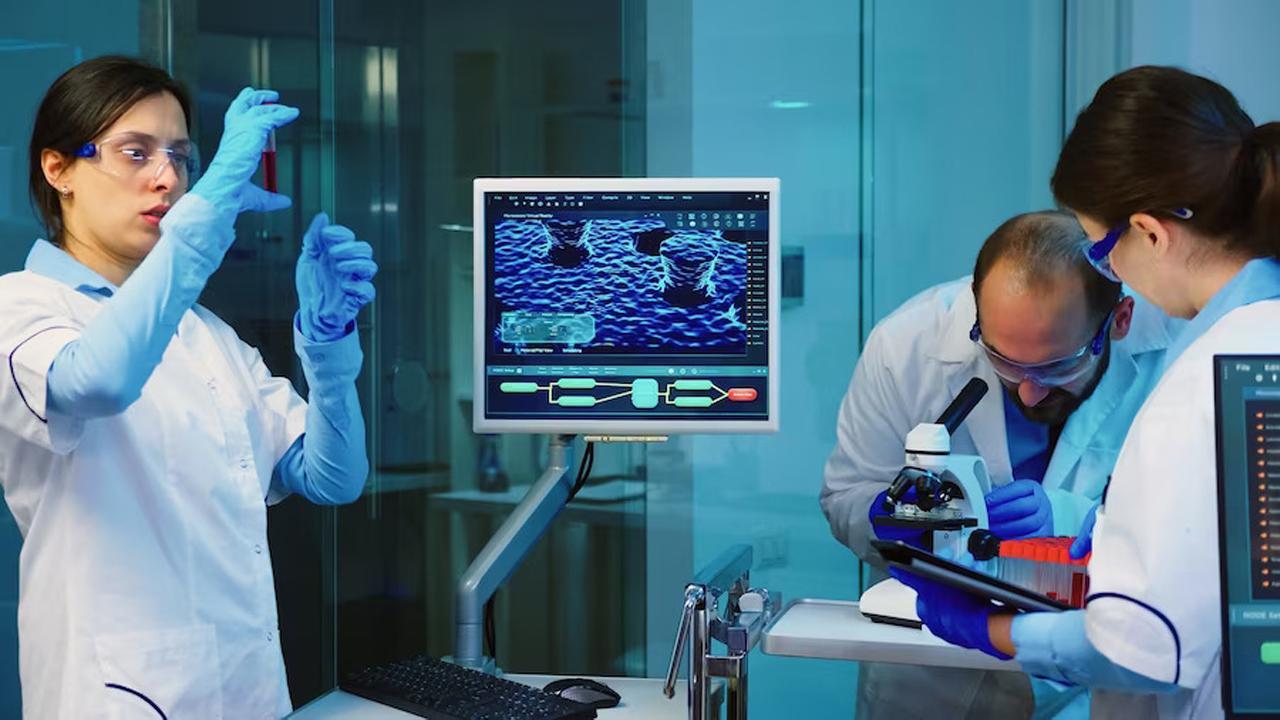Gentic alteration

by Gauri Gupta
Gene is the basic unit of heredity, controlling an individual’s physical characteristics. It also produces proteins that drive the internal functioning of the human body. Often the presence and absence of certain kinds of genes result in undesirable consequences. For example, sickle cell anemia is a genetic disorder developed due to inheritance of a faulty hemoglobin gene where disk shaped RBCs become sickle shaped, eventually blocking the capillaries and impacting the circulation. Thus, as genetics dictate multiple aspects of our functioning, modifying DNA segments of interest can bring about desirable changes like prevention or cure of genetically determined diseases and enhancement of certain advantageous characteristics like intelligence, strength, beauty etc. The former process is officially termed as Gene Therapy, while the latter is referred to as Genetic engineering.
Artificial genetic alteration is the scientific advancement which involves manipulation of a person's genes through vectors to alter functions controlled by them. Humans possess two categories of basic cells—somatic and germ cells. Genetic alteration in these cells is termed as somatic gene modification and germline gene modification respectively. According to the Center for Genetics and Society, Somatic gene modification adds, cuts or changes the genes in the somatic or non-reproductive cells of an individual. The variations introduced are limited to the individual undergoing the process. In contrast, Germline gene modification or inheritable gene modification would alter genes in the eggs, sperm or embryos. It is also referred to as ‘gene editing for reproduction’. This process is harder and a lot more complex and its results get extended to the progeny of the individual. One method of attaining this alteration is Clustered Regularly Spaced Short Palindromic Repeats/Cas9, which is the fastest and easiest way to edit genes by cutting or tampering with DNA. Through this technique, scientists can edit DNA precisely and then allow the natural process to take over. While this development is revolutionary, there is a heated debate about its ethics. Discussions are influenced by multiple factors like religion, culture, pro-life perspective and trust in medical science.
ADVERTISEMENT
While both sides of the debate hold value, I want to talk about the ethical permissibility of gene alteration, particularly, the benefits of gene editing. My perspective is driven by the philosophy of utilitarianism by Jeremy Bentham who stated “greatest happiness of the greatest number”. Genetic disorders like Cancer, Cystic Fibrosis, Muscular dystrophy leave the affected individuals handicapped. Physical deterioration and pain combined with the uncertainty associated with these conditions take a toll on individuals’ mental and emotional health. Living life in such excruciating circumstances deters one from acquiring a job and having stable finances. All these impede their day-to-day functioning and impact their quality of life. Not only do these disorders affect individuals, but also impair the lives of their close ones. Regular hospital visits, constant care and attention and emergency responses demand endless physical and mental strength on the caregivers’ end. The psychological and emotional trauma of these conditions burdens the caregivers and has an adverse impact on their own well-being. Thus, scientific development that can reduce such extensive suffering should be morally permissible.
To illustrate, p53 - a tumor suppressor gene - is responsible to prevent or stop formation of tumors in the body. If p53 is either missing or is non-functional in a person, they are prone to developing tumors and consequently cancer. As prevention/cure, a functional copy of p53 can be introduced in the body which will suppress the production of tumor and fix the defect. Similarly, many genetic disorders can be prevented by procedures like gene addition, gene editing, or gene silencing, in which new functional genes can be added, existing genes can be disrupted or removed in order to control chemical production. This technique can save and improve multiple lives as approximately 6 out of 10 people are affected by a genetically linked disease. Furthermore, the advancement appears promising in ensuring healthier future generations as it can wipe out the genetic error in the parental generation.
A popular objection against gene therapy is that it tampers with the course of nature. I want to respond to this by giving the example of vaccines. Introducing a foreign element in babies has rid entire generations of life threatening diseases like Influenza, Chickenpox, Polio etc. The idea of gene editing is also feared because it is considered a threat to human diversity. Specific genome structure that individuals possess at birth is what makes them unique, and potential of gene therapy to achieve desirable changes in DNA endangers this distinctiveness. The high cost involved gives an undue advantage to the rich who might misuse the procedure to strengthen particular traits. Although these significant issues put gene therapy in the dock, no innovation is without demerits. Through proper regulations and procedures, we can ensure that genetic alteration is implemented in the best and safest way possible. In this era of innovation, gene therapy has emerged as a blessing to human beings that will help us alleviate endless suffering caused by physically and mentally debilitating conditions.
 Subscribe today by clicking the link and stay updated with the latest news!" Click here!
Subscribe today by clicking the link and stay updated with the latest news!" Click here!








